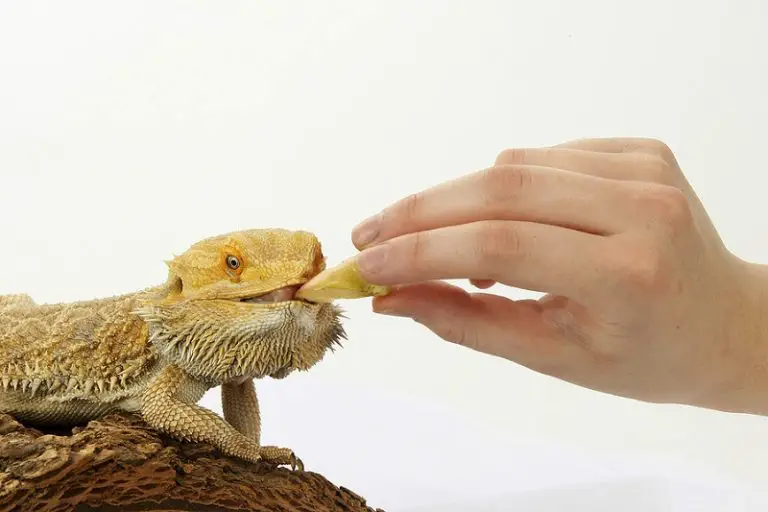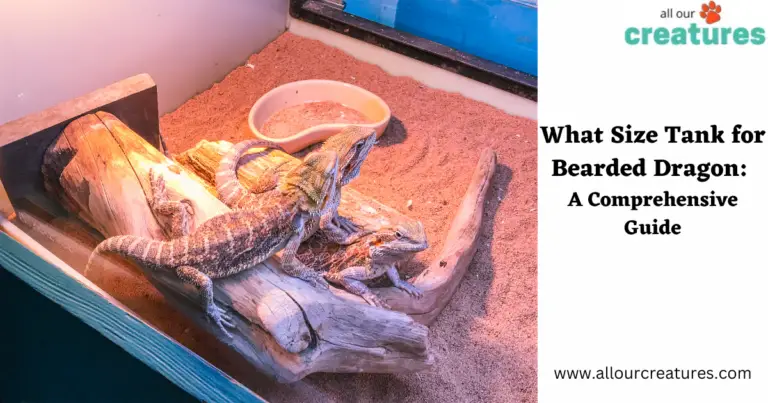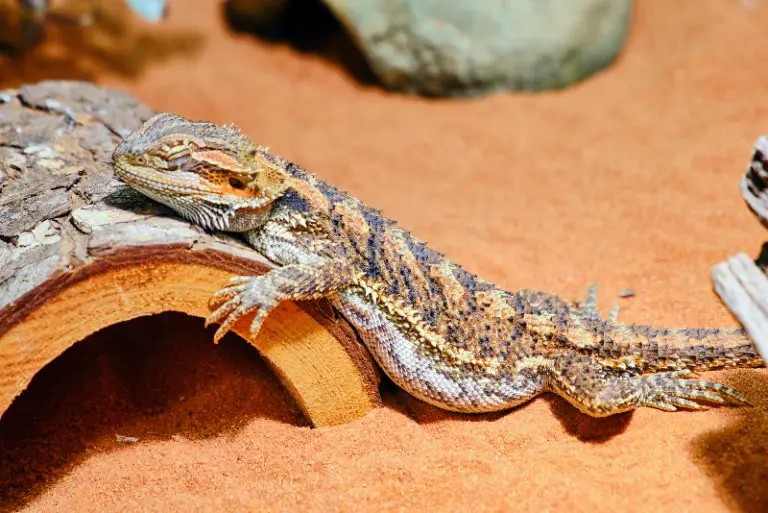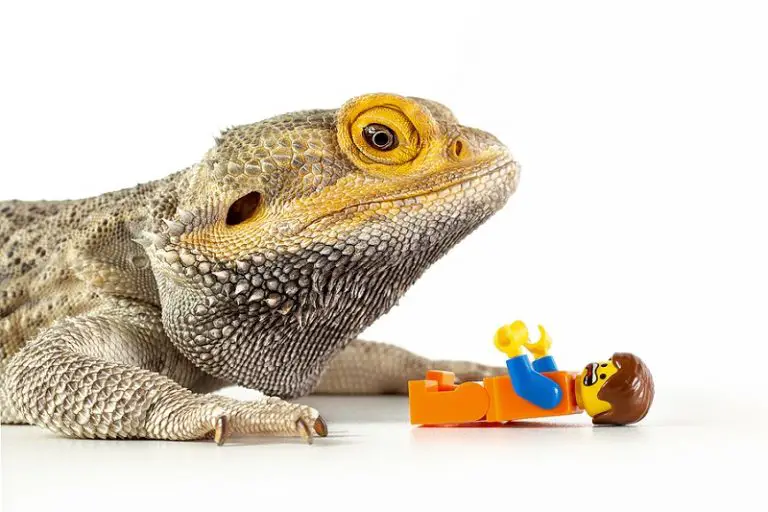How Often Should You Clean Guinea Pig Cage: A Quick Guide for Happy Pets
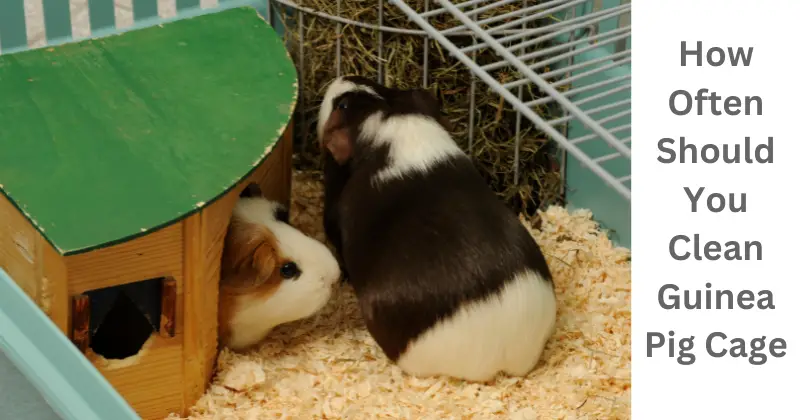
Keeping your guinea pig’s cage clean is essential for their health and well-being. But how often should you clean a guinea pig cage? Finding the right balance between cleanliness and comfort is important. In this guide, we’ll explore the ideal frequency for cleaning your guinea pig’s cage to ensure a clean and comfortable living environment for your furry friend.

Contents
Table of Contents
How Often Should You Clean Guinea Pig Cage: Explained
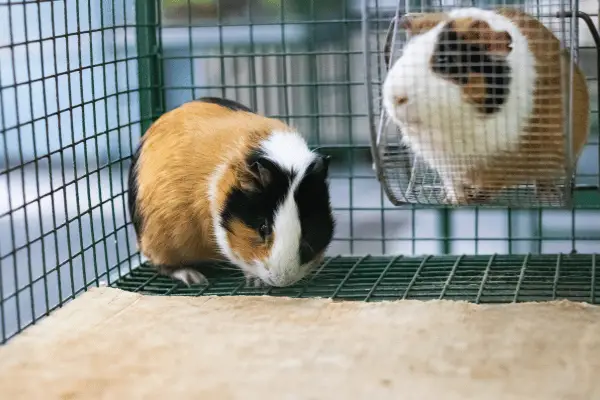
Guinea pigs are adorable and low-maintenance pets, making them a popular choice for families, children, and first-time pet owners. These small furry creatures require a clean and comfortable living environment to thrive. One essential aspect of keeping your guinea pig healthy and happy is maintaining proper hygiene in their cage.
Cleaning a guinea pig cage regularly prevents the buildup of bacteria, odor, and waste, which can negatively impact your pet’s health and well-being. Ideally, you should spot clean the cage daily and deep clean weekly to keep their living space free from harmful parasites and germs. Consistent cleaning can also help prevent respiratory issues and skin problems in guinea pigs.
Proper cage maintenance involves more than just changing the bedding. It’s essential to wash food and water bowls, tidy up furniture, and inspect the cage for hazards. By investing a little time and effort in keeping your guinea pig’s cage clean and hygienic, you can ensure a happier, healthier life for your beloved pet.
Why Cleaning Your Guinea Pig Cage Is Important
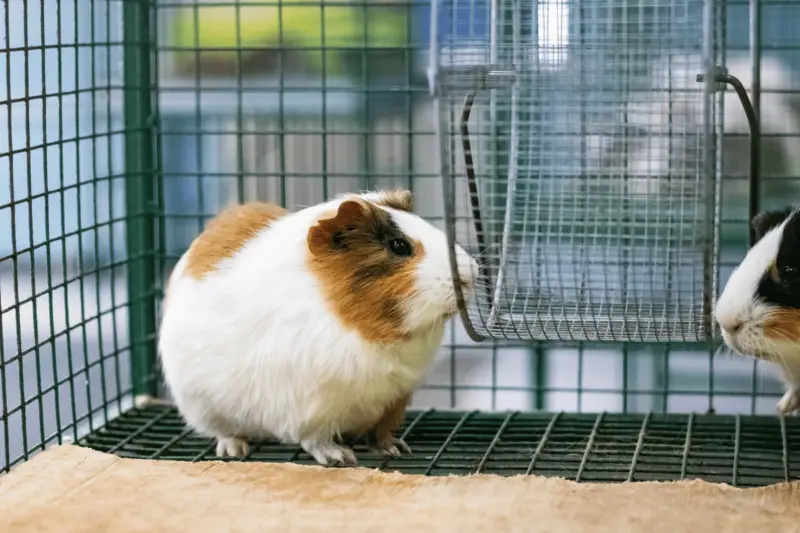
Cleaning your guinea pig’s cage is a crucial aspect of maintaining their health and happiness. A clean environment helps prevent the accumulation of bacteria, which can cause various infections and illnesses. Moreover, guinea pigs are sensitive to ammonia, a substance found in their urine. As the cage becomes dirty, the ammonia levels can rise, leading to respiratory problems for your cavy.
Regular cleaning ensures the reduction of stress levels in guinea pigs. Remember, they are social animals that thrive in clean and orderly surroundings. If their habitat is dirty and cluttered, guinea pigs can experience stress, which may impact their overall well-being and even lower their lifespan.
Another reason why you should clean your guinea pig’s cage is to minimize the risk of infections. A dirty environment is a breeding ground for harmful microorganisms, putting your cavy at risk for skin and ear infections, among other health issues. By cleaning the cage regularly, you can prevent such problems, keeping your guinea pig happy and healthy.
Moreover, always maintaining a clean habitat encourages your guinea pig to stay active and engaged in their environment. This, in turn, contributes to their mental and physical well-being. Inadequate cleanliness may lead to lethargy, inactivity, and potentially encourage unwanted behaviors like barbering (chewing on their fur).
Weekly deep cleaning and frequent spot cleaning of the cage are recommended for ensuring a healthy habitat for your guinea pig. When cleaning, make sure to use a pet-safe disinfectant and remove any leftover food, soiled bedding, and droppings. A clean environment will go a long way in keeping your guinea pig both happy and healthy.
How Often to Clean the Guinea Pig Cage
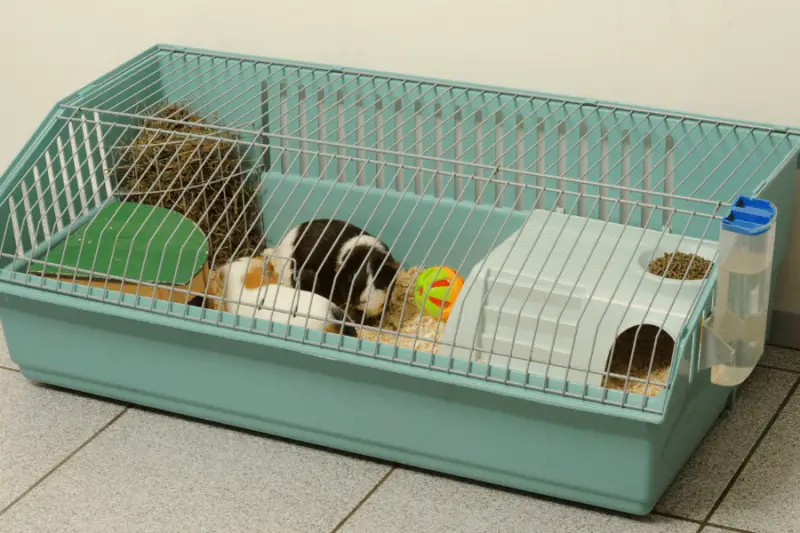
Spot Cleaning
It’s important to spot clean your guinea pig’s cage daily to maintain a clean and healthy environment. Spot cleaning involves removing soiled bedding, excess food, and droppings from the cage. Regular spot cleaning helps prevent the buildup of harmful bacteria and keeps the cage smelling fresh. Make sure to check the cage at least once a day for any mess or uneaten food.
- Why spot clean? Keep the cage fresh and reduce bacteria buildup.
- How often? Daily.
Deep Cleaning
In addition to daily spot cleanings, it’s essential to clean the guinea pig cage deep at least once a week. Deep cleaning includes removing all bedding and items from the cage for a thorough cleaning.
To deep clean, follow these steps:
- Remove everything: Empty the entire cage, including bedding, toys, and accessories.
- Wash the base: Use a sponge or brush to scrub the cage with a mixture of warm water and mild detergent or a solution of one part distilled white vinegar and three parts warm water. You can use undiluted vinegar for more stubborn messes, but be sure to rinse thoroughly afterward.
- Clean furniture and accessories: Wash items like toys, hiding spots, and food dishes with soap and warm water.
- Dry the cage: Dry the cage and all items with paper towels.
- Add fresh bedding: Place new bedding in the cleaned cage and put all items back inside.
- Why deep clean? Prevent health issues and maintain a comfortable living space.
- How often? At least once a week.
Factors that can influence the frequency of deep cleaning may include the number of guinea pigs, the size of the cage, and the type of bedding used. However, the usual recommendation remains for weekly deep cleanings, along with daily spot cleaning.
Steps for a Proper Cage Cleaning
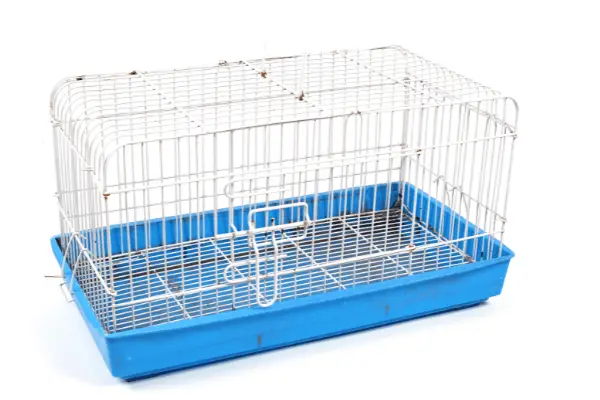
Cleaning your guinea pig’s cage is crucial for their health and well-being. This section will guide you through the process, split into four key sub-sections to help you provide the best environment for your pet.
Bedding and Substrate
When cleaning your guinea pig cage, the first thing to consider is the bedding and substrate. Remove all the old bedding from the cage and dispose of it in a trash bag. You can use a dustpan to scoop up small messes. Replace the soiled bedding with clean, fresh bedding, such as aspen bedding, fleece, or another safe and comfortable option. Avoid using cat litter or harmful substrates that can cause respiratory issues.
Regular maintenance is crucial, especially when it comes to the bedding. Depending on the size of the cage and the number of guinea pigs, you should aim to change the bedding at least once a week to maintain a clean environment and prevent mold or fungus growth.
Food and Water
Ensuring that your guinea pig has access to clean food and water is another essential aspect of cage maintenance. Empty the food bowl, dispose of any leftover food, and clean the bowl with mild detergent and hot water. Pay attention to any hair, debris, or stains that may accumulate in the food bowl. To prevent bacterial growth in the water bottle, clean it regularly, and refill it with fresh water.
Cage and Accessories
To clean the cage and accessories, use a brush or sponge to remove any debris or stains from the cage floor and walls. Regularly wash toys, hides, and other accessories using hot water and mild detergent to keep your guinea pig’s environment clean and stimulating. When cleaning fabrics like fleece, avoid using fabric softeners that may irritate your pet’s skin. In case you have a washing machine-friendly fleece bedding, you can use it to clean and dry the fabric.
Pay attention to the cage’s ventilation, as poor airflow can cause respiratory issues and contribute to the development of bumblefoot, a painful condition in guinea pigs.
Disinfecting the Cage
Lastly, disinfecting the cage helps in maintaining a healthy environment for your pet. Use a pet-safe disinfectant or a solution of equal parts water and white vinegar to clean the cage. Remember not to use bleach or any other harsh chemicals, as they can be harmful to your guinea pig. Spray the cleaning solution on the floor and sides of the cage and then wipe it off with a clean, damp rag.
In conclusion, maintaining a clean and comfortable environment for your guinea pig is essential for their health and well-being. Following the steps mentioned in this section will help you provide a safe, clean, and happy home for your pet.
Watch this Top Tips for a Spotless Guinea Pig Cage!
Additional Tips for a Healthier and Happier Guinea Pig
Guinea pigs are lovely pets, and ensuring their happiness and health is crucial for their well-being. Keeping their cage clean is essential, but beyond that, there are some additional tips that will help you provide a comfortable and safe environment for your little furry friend.
First, guinea pigs need a spacious cage. A guinea pig should not be housed in anything smaller than 200-square-inch floor space, which allows them to be more active and comfortable in their habitat. Good ventilation is also essential, so avoid using an aquarium for housing your pet.
Providing plenty of entertainment and stimulation is vital for a happy guinea pig. Make sure to fill their cage with guinea pig toys, such as tunnels, chew toys, and ramps. This will ensure they remain active, engaged, and mentally stimulated.
In addition to their toys, guinea pigs love having hiding spots in their cage, providing a small, enclosed area where they can feel safe and retreat to is crucial for their sense of security.
Another important aspect is their diet. Ensure you provide high-quality guinea pig food, as well as fresh fruits and vegetables, to supplement their diet. This will contribute to their overall health, happiness, and longevity.
Social interaction is also crucial for their well-being. Guinea pigs are quite friendly animals and benefit from regular handling and interaction with their human caretakers. This will help them become more confident and develop a stronger bond with you.
Moreover, always keep an eye on your pet’s health and behavior. Regularly examine them to ensure their eyes are bright and clean, and their noses and ears are not showing signs of redness, crusty sores, or scratches. If you notice any changes or signs of illness, reach out to a veterinary professional for advice and care.
In conclusion, providing a clean, comfortable, and stimulating environment, coupled with proper social interaction and a healthy diet, will go a long way in keeping your guinea pig happy, active, and healthy.
Conclusion: How Often Should You Clean Guinea Pig Cage

How often should I clean my guinea pig’s cage?
Cleaning your guinea pig’s cage depends on various factors, including the cage size, the number of guinea pigs, and their habits. As a general guideline, spot-clean the cage daily by removing soiled bedding and food waste. A thorough cage cleaning should be done at least once a week, replacing bedding and disinfecting the cage to maintain cleanliness.
What are the signs that indicate the cage needs cleaning?
If you notice a strong odor, excessive waste buildup, or dirty and soiled bedding, it’s a clear sign that the cage needs cleaning. Additionally, if you observe your guinea pig spending less time in their usual spots or displaying signs of discomfort, it may be an indication that the cage needs attention and cleaning.
Can I clean the cage less frequently if I use high-quality bedding?
While high-quality bedding can help control odors and absorb moisture better, it’s still important to maintain a regular cleaning routine for your guinea pig’s cage. Even with premium bedding, waste accumulation, and bacteria growth can still occur over time. Regular cleaning not only ensures a clean environment but also helps prevent potential health issues for your guinea pig.

